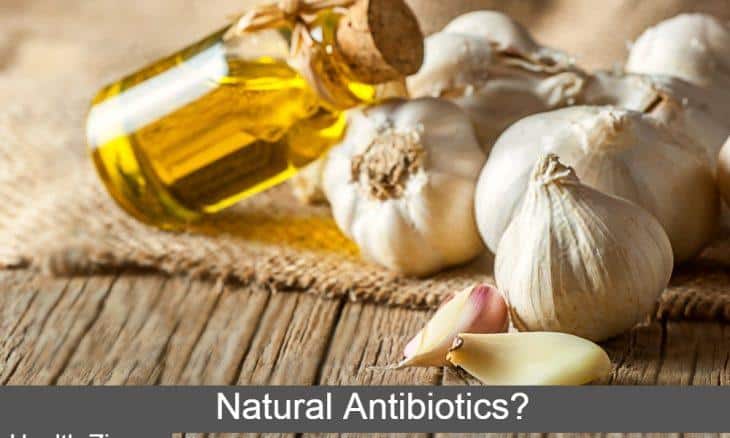
Contents
- 1 Acacia
- 2 Wormwood
- 3 Garlic
- 4 Aloe Vera
- 5 Crytolepis
- 6 Echinacea
- 7 Juniper
- 8 Eucalyptus
- 9 Grapefruit seed
- 10 Ginger
- 11 Honey as a natural antibiotic
- 12 Goldenseal root
- 13 Liquorice
- 14 Sage as a natural antibiotic
- 15 Usnea as a natural antibiotic
- 16 Propolis as a natural antibiotic
- 17 Onion
- 18 Oregano essential oil
- 19 Rosemary
- 20 Thyme
- 21 Tea tree oil
21 Natural Antibiotics To Try At Home
The resistance that bacteria have reached current antibiotics is becoming one of the main problems of contemporary medicine in the world. It appears that current antibiotics only postpone the problem, as bacteria will become resistant to these drugs.
If antibiotics controlled and their use had been strictly reduced to hospital use and had not gone out of there, antibiotics could have been useful to humanity much longer than they will be.
But we can help mitigate this significant problem that is coming to humanity, and we can start consuming natural antibiotics. Which in certain circumstances and under medical supervision can be very useful. They are also over-the-counter natural antibiotics.
There are natural antibiotics for the throat, skin, urinary infection, phlegmons, toothache, and many other ailments.
Many people self-medicate, a measure not recommended for health, and often abuse antibiotics. This abuse can harm the general state of health since it alters the bacterial flora and also favours the cancellation of the body’s natural defences. That is why it is advisable to consume natural antibiotics. Natural antibiotics strengthen the immune system and work as home remedies for many common diseases.
In any case, it is essential to note that we will use natural antibiotics whenever the doctor recommends. Since the natural ones do not replace the conventional ones in any case when treating possible conditions that we may have.
Here we reveal what the best natural antibiotics to try at home are and how to use them.
Acacia
Its main properties are:
- Antibacterial: used to fight bacteria.
- Anticatarral: It serves to combat a cold.
- Antifungal: Destroy or inhibit the growth and reproduction of fungi.
- Anthelmintic: It acts against intestinal parasites.
- Mucous anti-inflammatory: It reduces mucous inflammation.
- Antimicrobial: Fights microorganisms or prevents their appearance.
- Astringent: It prevents and helps eliminate gases from the digestive tract, relieving colic, and spasms.
- Hemostatic: Effective in stopping bleeding.
- Mucilaginous: It stimulates the digestive system.
- Sedative: Soothes or calms pain or nervous excitement.
Uses and forms of consumption:
- Infusion: Boil 28 gr of Acacia in 475 ml of water for 15 to 30 minutes and let stand overnight.
- Washing: Use an infusion of leaves, stems, and pods to wash infected wounds.
- Powder: Apply to fungal infections and wounds. W to stop bleeding from an injury and prevent disease.
- Pasta: Combine one part of acacia paste with three parts (by volume) of distilled water. Deposit in a closed bottle or jar and store in the refrigerator. Let it dissolve and stir occasionally. Dose: You can take 1 or 2 tablespoons (15 – 30 ml) as often as necessary for inflammation and pain in the gastrointestinal tract.
Wormwood
Precautions: Avoid large doses during pregnancy. Concentrated infusions have caused abortion in rats. Although weak injections are considered safe. The essential oil should not be ingested. Small doses can lead to kidney failure and even death. Prolonged and excessive use of the herb for years can cause damage to the central nervous system due to high levels of thujone. The purpose of this plant in folk medicine is widespread. But it has to be recognised that wormwood is a potent herb and should be used with caution.
Its main properties are:
- Antimebian: Fight against infection caused by Entamoeba.
- Antibacterial: It is used to fight bacteria.
- Antifungal: They destroy or inhibit the growth and reproduction of fungi.
- Antihepatic: Reduces inflammation of the liver.
- Anti-inflammatory;
- Antipyretic: Fever decreases.
- Choleretic: Stimulates the production of bile in the sports liver.
- Diaphoretic: That makes you sweat.
- Gastric stimulant;
- Immuno-modulating;
- Vermifuge: Kills roundworms.
Uses and forms of consumption:
- Capsules: You can take 1 to 5 tablets, four times a day.
Garlic
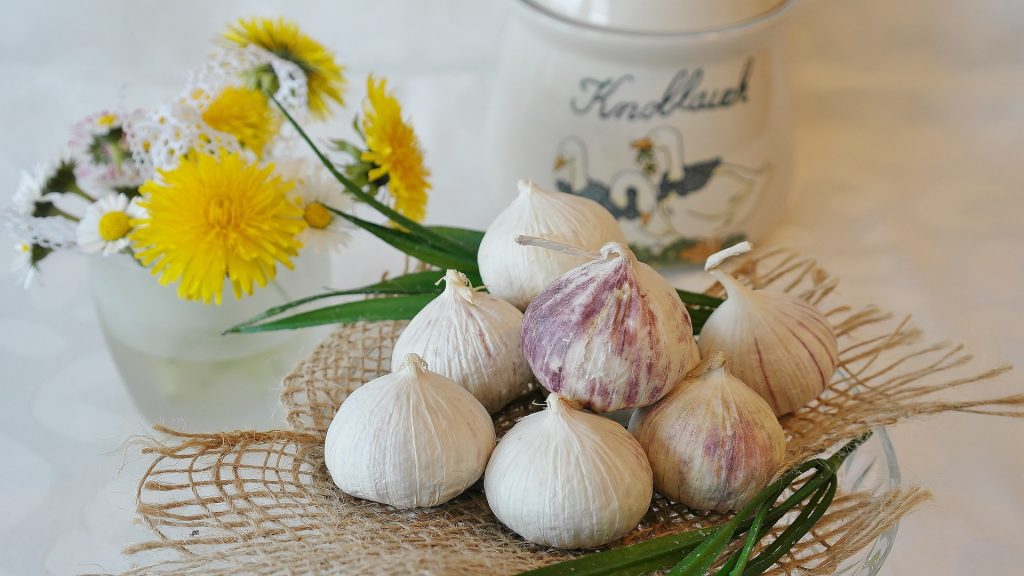
Garlic considered in the last centuries one of the most effective natural remedies. It is rich in antioxidants, capable of contributing to the destruction of free radicals, responsible for the deterioration of the body’s action, which over time, can lead to heart disease and cancer. Garlic helps lower blood pressure, fight skin infections, and protect the heart.
Read Also:
- The health benefits of garlic
- What Is Garlic Oil? How Can You Use It To Get Maximum Health Benefits?
- Health Benefits Of Raw Garlic Eating On Empty Stomach
Precautions: Garlic can cause nausea and vomiting if taken in large quantities. Garlic not recommended for nursing mothers.
Its main properties are:
- Antibacterial: It is used to fight bacteria.
- Painkiller;
- Antifungal: Garlic destroys or inhibits the growth and reproduction of fungi.
- Antispasmodic: Helps to decrease muscle spasms of the intestines.
- Anthelmintic: It acts against intestinal parasites.
- Antiparasitic;
- Antiprotozoal;
- Antiseptic: Prevents the development of pathogenic microorganisms.
- Antiviral: It fights viruses and prevents their reproduction.
- Colagoga: Causes the evacuation of bile.
- Diaphoretic: That makes you sweat.
- Hypotensive: Lowers blood pressure.
- It is stimulating the immune system.
Uses and forms of consumption:
- Capsules: Take three capsules three times a day as a preventive measure.
- Tincture: Mix in a proportion of 1/2 fresh pulp in 95% alcohol. Take 40 drops up to 6 times a day.
Aloe Vera
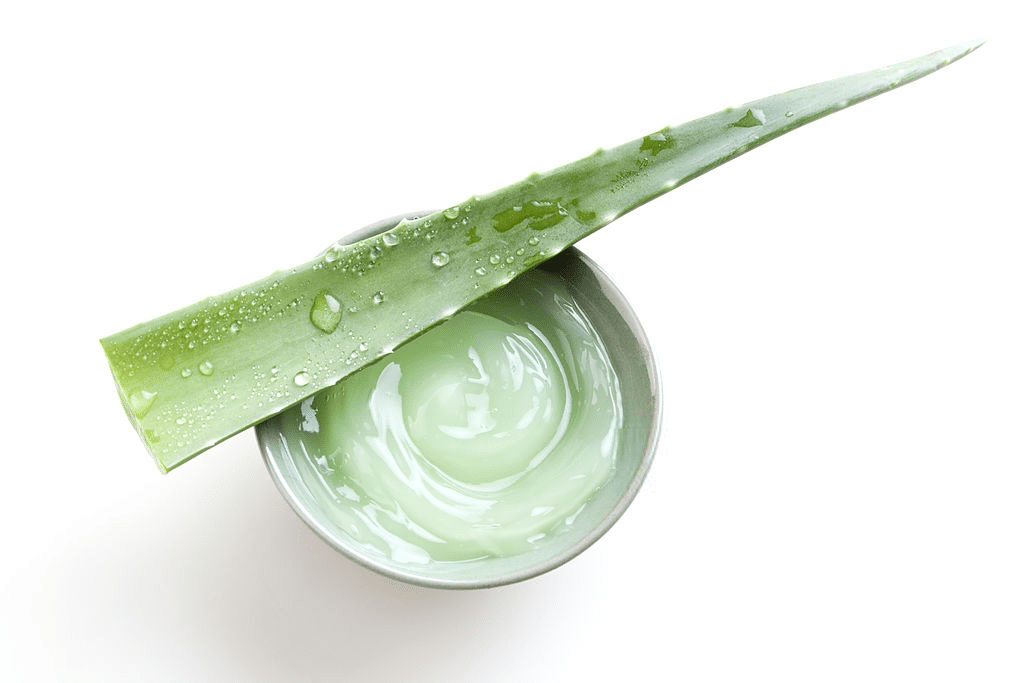
Its main properties are:
- Antibacterial: It is used to fight bacteria.
- Antimicrobial: Fights microorganisms or prevents their appearance.
- Anti-inflammatory;
- Antiviral: It fights viruses and prevents their reproduction.
- Anti-ulcer;
- Healing;
- Purgative;
Uses and forms of consumption:
- External application: Open the fresh leaves of the plant and apply it to the wound or burn until it is well covered.
Crytolepis
Its main properties are:
- Antibacterial: It is used to fight bacteria.
- Antiparasitic;
- Antifungal: Destroy or inhibit the growth and reproduction of fungi.
Uses and forms of consumption:
- Infusion: Preventively, mix one tablespoon of herb with 170 ml of water to make a strong infusion. Take 1 or 2 times a day.
- Capsules: Preventively, take three capsules two times a day.
- Powder: For external use, finely grind and distribute at the site of infection as often as necessary.
- Tincture: Mix in a 1/5 ratio in 60% alcohol. Use 20 to 4o drops up to 4 times a day.
Echinacea
Echinacea has widely used for strengthening the immune system. It is considered useful for the prevention and treatment of seasonal diseases, such as colds and flu. Echinacea is particularly convenient in the case of diseases of the upper respiratory tract, which may include, also, to cough—also indicated for the treatment of infections involving the urinary tract.
Read Also: 6 medicinal plants and herbs.
Precautions: Echinacea is a stimulant of the immune system, so prolonged doses should be avoided. On rare occasions, it can cause joint pain if taken continuously.
Its main properties are:
- Antibacterial: It is used to fight bacteria.
- Anti-inflammatory;
- It is stimulating the immune system.
Uses and forms of consumption:
- Washing: Cook 57 g of the flower heads or roots in 237 ml of water for 15 minutes, let stand 1 hour, and wash the poisonous bites abundantly as many times as necessary.
- Powder: Spread the dry dust of seed heads or roots as finely as possible on wounds.
- Tincture: Mix dried flower heads in a 1/2 ratio in 95% alcohol. For colds and flu, take no less than 30 drops every hour until symptoms disappear.
- Poultice: Mix the powder with water until it thickens, and place it on the affected area.
Juniper
Precautions: Avoid taking it if you suffer from acute kidney disease, during pregnancy, or with gastric inflammation. High or prolonged doses can irritate the kidneys.
Its main properties are:
- Antibacterial It is used to fight bacteria.
- Anticatarral. It serves to combat a cold.
- Antifungal. Destroy or inhibit the growth and reproduction of fungi.
- Antimicrobial. Fights microorganisms or prevents their appearance.
- Antiseptic: Prevents the development of pathogenic organisms.
- Carminative. It favours the expulsion of gases from the digestive tract and reduces flatulence and colic.
Uses and forms of consumption:
- Infusion: Boil a teaspoon of juniper in 177 ml of water for 15 minutes. For respiratory tract infections or food poisoning, take as often as desired.
- Washing: Juniper used to prevent or cure the disease. Use 25 g of the herb in 1 litre of water, boil for 30 minutes and let stand overnight.
- Powder: Add the plant powder to prevent or heal a wound infection.
- Tincture: Mix the berries in a 1/5 ratio with 75% alcohol. Use 5 to 30 drops up to 3 times a day.
- Vapours: Boil 100 grams of needles or crushed seeds in 4 litres of water and inhale the steam.
Eucalyptus
Precautions: Intake from 4 or 5 drops of eucalyptus essential oil is toxic. The oil can be irritating if placed directly on the skin. Ingesting too much tea can cause intestinal cramps.
Its main properties are:
- Antibacterial;
- Antifungal: Destroy or inhibit the growth and reproduction of fungi.
- Antipyretic: Fever decreases.
- Antiseptic: Prevents the development of pathogenic microorganisms.
- Diaphoretic: That makes you sweat.
- It is stimulating mucous secretions.
Uses and forms of consumption:
- Infusion: Boil 25 gr of the herb in 237 ml of water, soaking for 30 minutes. Take the injection up to 6 times a day for colds, sore throats, bronchial congestion, fever, or chills.
- Washing: Wash infected wounds with an infusion of 25 g of grass in 237 ml of water, soaking for 30 minutes.
- Powder: Apply the powder on infected skin, scars, ulcerations, as necessary.
- Tincture: Mix 1/2 of fresh herb in an alcohol ratio of 95%.
- Gargle: 30 drops of tincture in 177 ml of water. Rinse up to 3 times a day and swallow.
- Nasal spray: 30 drops of tincture in 30 ml of water with the desired frequency.
- Showers: 8 ml of tincture in 475 ml of water once a day.
- Steam: Boil 75 to 100 gr of the herb in 4 litres of water, remove from the heat and inhale the steam.
Grapefruit seed
Precautions: Grapefruit seed extract must be diluted before use. Long-term use can kill all intestinal bacteria as well as broad-spectrum antibiotics. The diluted extract can irritate the skin and mucous membranes. Keep out of children’s reach. Caution recommended in pregnancy.
Its main properties are:
- Antibacterial;
- Antifungal: Destroy or inhibit the growth and reproduction of fungi.
- Antimicrobial: Fights microorganisms or prevents their appearance.
- Antiparasitic: Eliminate or prevent parasites.
- Antiseptic: Prevents the development of pathogenic organisms.
- Antiviral: It fights viruses and prevents their reproduction.
Uses and forms of consumption:
- Washing: You can use 2 to 40 drops in 475 ml of water for infected wounds.
- Disinfectant: 30 to 40 drops per 1 litre of water.
- For bandages: 30 to 40 drops in 1 litre of distilled water in a spray bottle.
- Nasal spray: 3 to 5 drops up to 6 times a day.
- Showers: You can use 6 to 12 drops in 475 ml of water, twice a day for up to 1 week.
- To purify water: 3 drops for every 237 ml of water.
Ginger
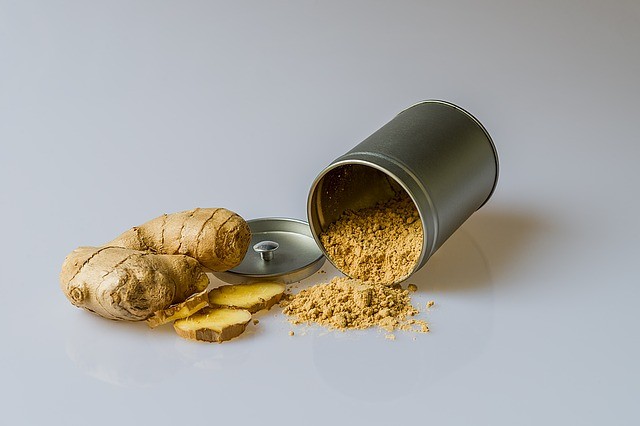
We can say that ginger is one of the best natural antibiotics available on earth. Ginger is a real panacea for health. They can be eaten fresh, as a food in itself, or the form of spices and condiments, after being dried and reduced to powder. The beneficial effect of ginger provides the infusion; it is useful for the treatment and prevention of the flu, sore throat, cough, and cold.
Read Also: Ginger: Properties And Health Benefits
Precautions: Avoid large doses during pregnancy.
Its main properties are:
- Painkiller
- Anti-arthritic.
- Antibacterial
- Anticoagulant.
- Antitussive.
- Antispasmodic: Helps to decrease muscle spasms of the intestines.
- Antifungal. Destroy or inhibit the growth and reproduction of fungi.
- Anti-inflammatory.
- Antiviral. It fights viruses and prevents their reproduction.
- Carminative. It favours the expulsion of gases from the digestive tract and reduces flatulence and colic.
- Diaphoretic: That makes you sweat.
- Circulatory stimulant.
- Hypotensive Lowers blood pressure.
Uses and forms of consumption:
- Infusion: Boil 25 gr of fresh root for 5 minutes in 237 ml of water.
- Capsule: Grind the herb into powder and encapsulate. Take three capsules three times a day.
- Tincture: Mix fresh root in a proportion of 1/2 in 95% alcohol. Use 10 to 20 drops up to 4 times a day.
- Root: Eat the desired amount often.
Honey as a natural antibiotic
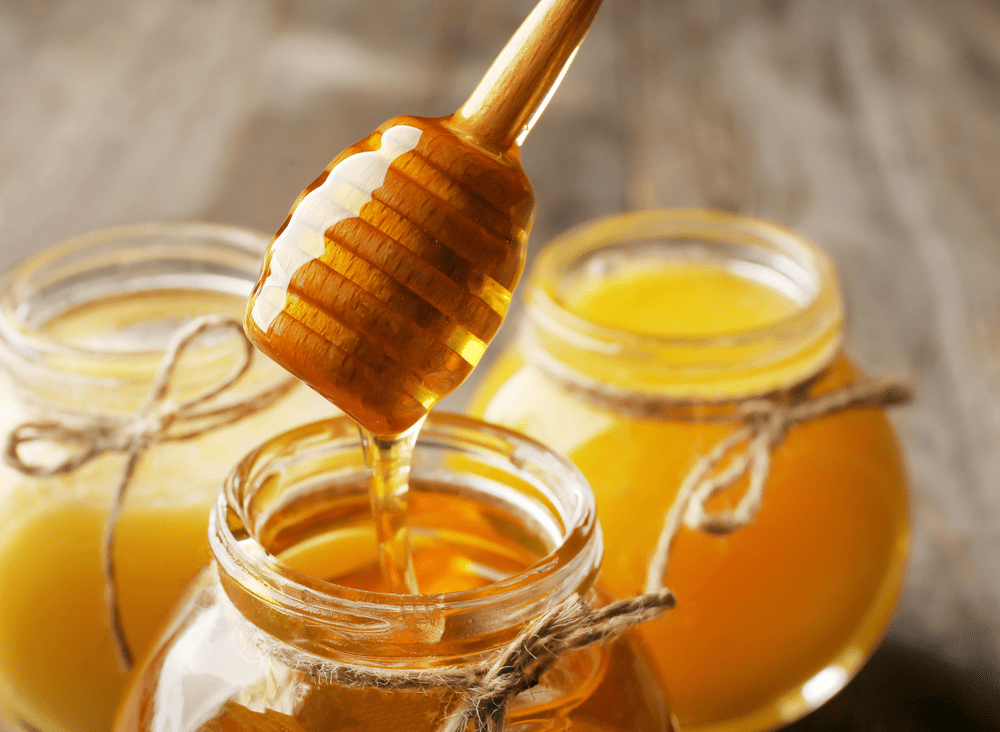
Precautions: There are three cases in which raw honey can be harmful. If bees make raw honey from poisonous plants, sometimes raw honey can have botulism spores that can be very dangerous for children under one year of age. Rarely, people allergic to bee stings can have adverse reactions to honey.
Its main properties are:
- Antianemic: It helps to restore the standard mechanisms of haemoglobin production and the formation of red blood cells.
- Antifungal. They destroy or inhibit the growth and reproduction of fungi.
- Anti-inflammatory.
- Antiviral. It fights viruses and prevents their reproduction.
- It is stimulating the immune system.
- Expectorant: Ejects phlegm and secretions from the pharynx, larynx, trachea, or bronchi.
- Laxative: Serves to facilitate the evacuation of the belly.
- Tonic: Reconstitute.
Uses and forms of consumption:
- Dilute in infusion: As a preventive, take one tablespoon in the injection three times a day.
- You can use honey for external applications for ulcers, wounds, burns, and infectious inflammation of the skin. Apply directly undiluted, cover with a sterile bandage, and change every day.
- Undiluted: As a preventive, take one tablespoon three times a day.
Goldenseal root
Precautions: Do not use during pregnancy. Some clinical cases report abdominal cramps, nervous tremors, and excessive dryness of the mucous membranes when high doses used.
Its main properties are:
- Goldenseal root can Fight against infection caused by Entamoeba.
- Antibacterial It is used to fight bacteria.
- Antifungal. Destroy or inhibit the growth and reproduction of fungi.
- Antihemorrhagic. This root promotes blood clotting.
- Mucous anti-inflammatory.
- Astringent. It prevents and helps eliminate gases from the digestive tract, relieving colic, and spasms.
- Diaphoretic: That makes you sweat.
- Expectorant: Ejects phlegm and secretions from the pharynx, larynx, trachea, or bronchi.
- It is stimulating mucous secretions.
- Antiseptic: Prevents the development of pathogenic microorganisms.
Uses and forms of consumption:
- Infusion: For viral or bacterial eye infections, use a powdered root infusion. One teaspoon in 177 ml of hot water, rest for 1 hour, and use as eye drops.
- Powder: Apply to any infected cut or wound.
- Tincture: Mix fresh herb in a ratio of 1/2 in 90% alcohol, 15-30 drops up to 4 times a day. Or dry root in a 1/5 proportion, in 70% alcohol, from 20 to 50 drops up to 4 times a day.
- Shower: 1 teaspoon (5 ml) of powdered root infusion in 475 ml of water. Use every morning and evening until symptoms subside.
Liquorice
Precautions: Licorice has many side effects. Overdose or prolonged use can cause a severe reduction in potassium, hypertension, decreased plasma renin and aldosterone, oedema, and in massive doses, reduction in the size and weight of the thymus and the number of blood cells. All of these contraindications tend to decrease within 2-4 weeks of stopping liquorice. It is contraindicated during pregnancy and in people with corticosteroid therapy. The quotes that collect these side effects are generally for liquorice candy and extracts.
Its main properties are:
- Antidiuretic: Reduces the excretion of urine.
- Antispasmodic: Helps to decrease muscle spasms of the intestines.
- Antihyperglycemic: Reduces the excessive amount of glucose in the blood.
- Antihepatotoxic: Acts against hepatotoxicity.
- Anti-inflammatory: Fights inflammation.
- Antiulcer: Blocks the secretion of hydrochloric acid and facilitates the repair of gastric and duodenal ulcers.
- Antioxidant: Prevents oxidation.
- Demulcent: Helps and protects irritated or inflamed tissues.
- Gastric stimulant: stimulates the gastric apparatus.
- Patric secretion stimulant: stimulates pantry secretions.
- It is stimulating the immune system.
- Expectorant: Ejects phlegm and secretions from the pharynx, larynx, trachea, or bronchi.
- Free radical inhibitor.
- Immuno-modulating. It modifies one or more functions of the immune system.
- Laxative: Serves to facilitate the evacuation of the belly.
Uses and forms of consumption:
- Infusion: 1/2 to 1 teaspoon of powdered root in 237 ml of water. Boil over low heat for 15 minutes. Take up to 3 cups a day.
- Capsules: You can take 2 to 8 pills a day.
- Tincture: mix dry root in a 1/5 ratio in 50% alcohol. Take 30 to 60 drops up to 3 times a day.
Sage as a natural antibiotic
Precautions: Healthzigzag recommends to take sage neither during pregnancy nor during the lactation period.
Its main properties are:
- Antibacterial It is used to fight bacteria.
- Antiseptic: Prevents the development of pathogenic microorganisms.
- Astringent. It prevents and helps eliminate gases from the digestive tract, relieving colic, and spasms.
- Diaphoretic: That makes you sweat.
- Expectorant: Ejects phlegm and secretions from the pharynx, larynx, trachea, or bronchi.
Uses and forms of consumption:
- Infusion: 2 teaspoons of leaves in 237 ml of water, soak for 15 minutes. Gargle and then ingest for throat infections and fever 3 to 6 times a day. For the tonic, use let stand 113 gr in a litre of water overnight and drink cold throughout the next day for seven days.
- Powder: sprinkle on infected wounds.
- Tincture: mix fresh herb in a 1/2 ratio with 95% alcohol. Or dry grass in a 1/5 rate in 50% alcohol. Preventive use: 10 to 30 drops up to 3 times a day. In acute conditions, 30 to 60 drops up to 6 times a day.
- Vapours: Mix 113 grams of the herb in 4 litres of water, bring to a boil, and inhale the steam.
Usnea as a natural antibiotic
Precautions: Tincture from usnea is often irritating to the mucous membranes of the mouth and throat. It must be diluted in a glass of water before consumption. Animal testing has shown that excessively high amounts of usnic acid are toxic to animals, although no toxicity has been observed in human use. Generally, the number of ingested usnea does not contain sufficient amounts of heavy metals that can harm the body. However, we recommended harvesting the line at least 100 m from the roads, factories, and contaminated areas.
Its main properties are:
- Antibacterial It is used to fight bacteria.
- Antifungal. Destroy or inhibit the growth and reproduction of fungi.
- Immune system stimulant: Stimulates the immune system.
Uses and forms of consumption:
- Powder: sprinkle at the site of infection. Except for impetigo (Staphylococcal skin infection): use the tincture directly or dilute 50% and apply directly to the injection site with a cotton swab.
Propolis as a natural antibiotic
Propolis is one of the best natural medicines, which is characterised by its high content of bioflavonoids, as well as essential oils, trace elements, and vitamins. The bees are in charge of extracting this resin from the bark of the trees, using it both to cover and to protect the hives.
Onion
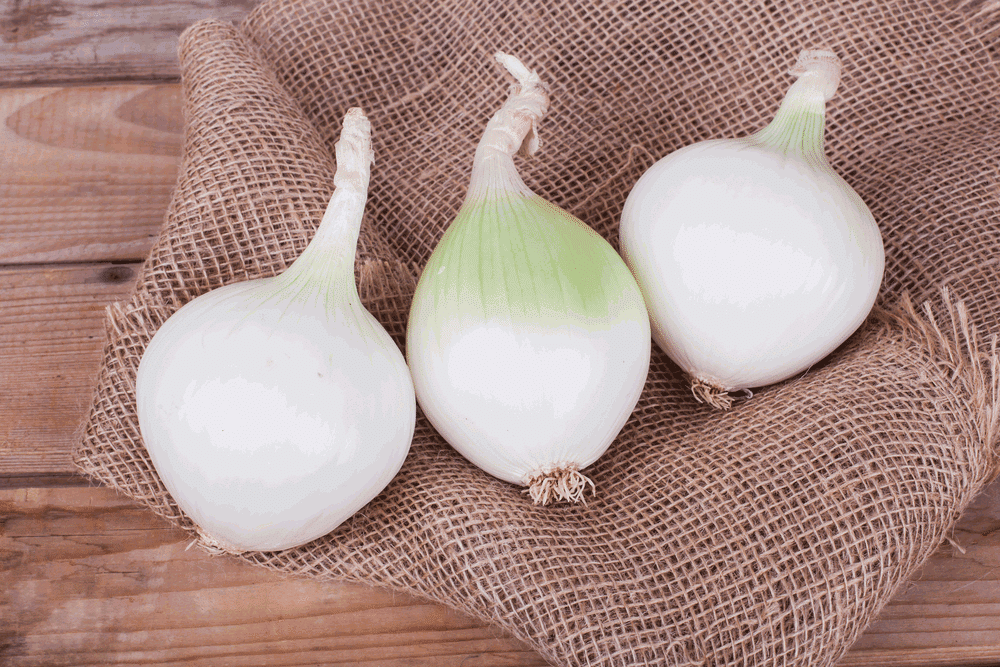
A medicinal food with excellent properties both to prevent and to treat respiratory disorders and parasites. One of its best-appreciated qualities is that it favours the natural elimination of toxins thanks to its high sulfur content.
Read Also:
Oregano essential oil
Oregano essential oil is one of the best essential oils, which is very useful to fight viruses, bacteria, fungi, and different types of parasites. It can be both consumed and applied topically. In the second case, the idea is to drink a drop of this type of essential oil twice a day, in the morning, and at night.
Rosemary
Rosemary is one of the best natural antibiotics out there. As with the rest of the lip family, in addition to being aromatic, it is a precious medicinal plant.
One of its active ingredients is carnosol or carnosic acid. This potent antimicrobial makes this plant one of the most important to treat all kinds of internal and external infections.
Thyme
Like rosemary and oregano, thyme is a powerful natural antibiotic and is one of those herbs that should not be missing in our pantry. Thyme infusion for throat infections is genuinely miraculous.
Tea tree oil
This oil has powerful antibacterial effects, which is why it is often used on the skin to combat conditions such as acne and various infections. It would also be useful as a disinfectant and antiseptic, there is evidence that indicates that its use would be comparable to that of another antifungal medication called clotrimazole.
Read Also: 9 Simple Uses of Tea Tree Oil to Cure Acne
Cautions while using natural antibiotics
Not completing the treatment or taking natural antibiotics when they are not necessary, would allow the bacteria to evolve and develop resistance to the drugs, making their treatment difficult, according to the World Health Organization (WHO). At that rate, there would be fewer and fewer effective medications to fight infections, even the most common ones.
Correct use of natural antibiotics
Specialists warn that, by using natural antibiotics appropriately, we can prevent more resistant bacteria from emerging. To do this, you must take them only when necessary, and do it until completing the treatment. It would also be useful to opt for herbal options in case of light infections, as long as a doctor considers it correct. Published By Healthzigzag.com




